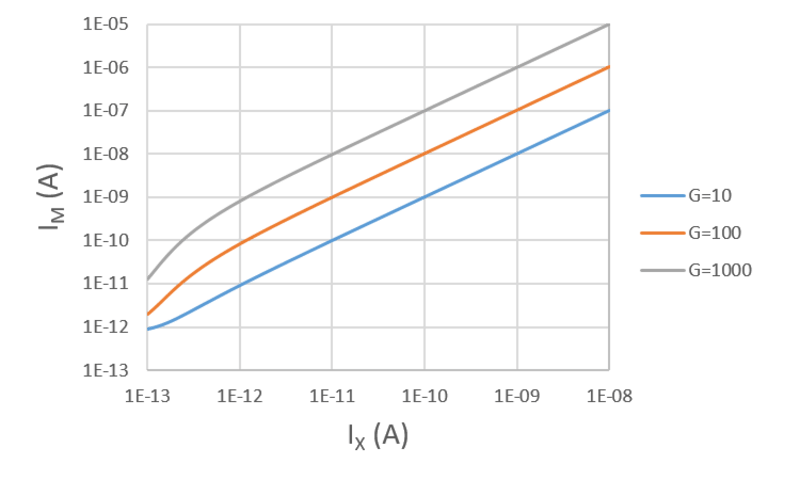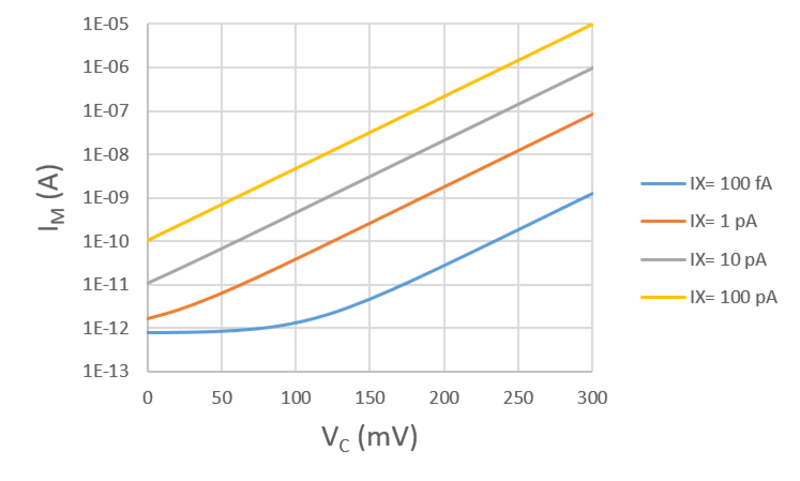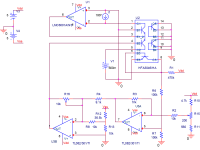We propose a low-cost circuit using commercial off-the-shelf components that enables the measurement of electrical currents in the order of pA range. The circuit presents an output current that is an amplified version of the current to be measured, using the exponential relationship between currents and voltages in Bipolar Junction Transistors (BJTs) and Metal Oxide Silicon Field Effect Transistors (MOSFETs) when operating in the weak inversion region. Furthermore, a block was introduced in order to compensate the gain’s temperature dependence. The results showed that the operating range for the current that will be measured was more than seven decades using BJTs and five decades by using MOSFETs with a high linearity. The circuit version using MOSFETs was able to measure currents as low as 100 fA. The current gain has also good linearity for over five decades. This circuit has a stable behavior for the range of 20 °C to 40 °C, because of the temperature compensation block.
Fig. 1 illustrates the circuit with BJTs. Thermal compensation is done by Q3 and the amplification by Q1 and Q2. Figs. 2 shows the amplified current as a function of the unknown current for various gains and Fig. 3 the same parameter as a function of the voltage that determines the gain for various input currents.
Due to the low cost, it can be included in commercial multimeters, expanding the current measurement at least to pA range.
Like this entry?
-
About the Entrant
- Name:Antono Telles
- Type of entry:teamTeam members:Antonio Telles
Jair Emeri Jr.
Saulo Finco
Luis Seixas Jr. - Software used for this entry:Cadence OrCAD
- Patent status:pending








